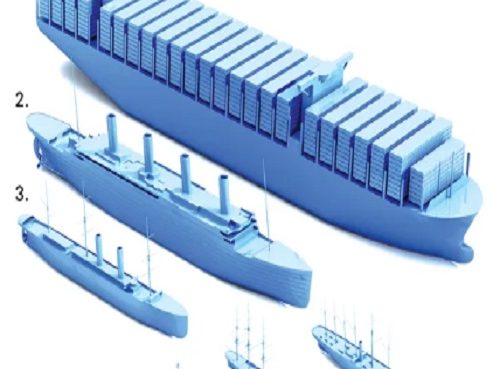Behind the scenes, engineers play a critical role in putting food on our plates, says Keith Thornhill.
What’s your current role?
I’m Head of Food and Beverage UK and Ireland at Siemens Digital Factory Division. We make Automation components for food and beverage manufacturers and the suppliers of machinery into their production lines.
It’s actually the largest manufacturing sector in the UK, though you wouldn’t know it. In the automotive or aerospace sectors, the engineering products are obvious. With food and drink, the engineering is largely invisible: you’re hungry, you buy a lasagne, you eat it – you don’t tend to think about the engineering that went into its manufacture or got it to your supermarket.
In reality, engineering has a huge role to play in the entire journey ‘from farm to fork’. There’s plenty of heavy engineering on farms – tractors and other farm equipment – but engineering is also critical in food preparation, processing, packaging and delivery to where it’s needed. Food and drink are essentials, so delivering them to consumers – enough for 1.35 billion meals every week – is big business.
Manufacturing is all about processes – what we call a ‘supply chain’. Production lines have to manage every step of the process from the delivery of raw materials to the distribution of products with incredible efficiency. Factories achieve remarkable things – a baked bean factory can make three million cans of baked beans every day.
Ever since Henry Ford invented the production line, manufacturers have looked for ways to speed up production processes. When I started work, food and drink manufacturing was a fusion of mechanical and electrical engineering – sophisticated machinery, finely controlled. Now, we’re seeing the dawn of a completely new era – sometimes known as ‘industry 4.0’ or the fourth industrial revolution.
It’s being driven by a transformation in the way digital technologies collect and use data. One obvious sign of this is in the automation and robotics that are transforming distribution (and allowing companies like Amazon, which have pioneered these technologies, to get involved in food delivery). But data are being used to improve every stage of the farm-to-fork pathway.
Even small improvements in efficiency could have a big impact – a 2% improvement at that baked beans factory would mean an extra 60,000 tins of baked beans a day.
As well as improving efficiency, automation and digitisation are also enabling us to do new things – such as provide more tailored products. When you buy a new car, you can now often personalise it, so you’re buying a car almost unique to you. A similar thing is happening in the food and drink industry. Brands like Nutella and Coca-Cola have experimented with ‘individualised’ packaging, but it won’t be long before we can specify what we want rather than just accepting a one-size-fits-all product.
How did you end up in your current role?
It’s been a long journey. I really wanted to be a professional footballer, but I didn’t quite make it. I grew up in Crewe which at the time was surrounded by a lot of heavy industry, so in some ways it was a natural field to get into. I studied for an apprenticeship, because I was quite a practical learner, there were good local opportunities, and it gave me time to pursue my sporting interests.
I did a five-year apprenticeship with British Rail engineering, which gave me an excellent grounding. I became particularly interested in manufacturing processes – how were these great products actually made? I had a number of jobs, and also gained more in-depth mechanical engineering knowledge at Nottingham University, before landing a role in sales. This turned out to be the perfect niche for me, being the bridge between customers and technical product development.
My apprenticeship suited me well, and they are definitely an option worth looking into. The opportunity to ‘learn and earn’ is obviously one attraction. Higher apprentices are highly prized by employers because they have such a practical mindset and industry experience.
What’s the best thing about being an engineer?
As a senior manager, my life is ruled by financial targets. But I don’t see myself as just a salesperson. I want to understand what challenges clients face, and how our products could best solve those challenges. As a practising engineer, I think I have credibility – I’ve been in my clients’ shoes.
As a whole, engineers tend to be a rather humble group, and they don’t make a song and dance about their accomplishments. I still enjoy team sports, and I see a lot of similarities with engineering. Both rely on people with special roles but achieve most when everyone works together; no one person can achieve success on their own. Problem solving in engineering is also a little bit like tactics in football – given what we know of the opposition and our own abilities, how can we stop them scoring and create chances ourselves? Planning, execution, learning – it’s all there in sport as well as engineering.
Can anyone become an engineer?
There are so many different roles in engineering that almost anybody could find something suitable. Having said that, engineering does depend on having a questioning attitude, a curiosity to understand why things are the way they are and whether they can be improved. I don’t think everyone has that spark, which you really need if you’re going to be the inventor-engineer who really makes a difference.
What three things should young people know about engineering?
- There’s a real need for engineers in manufacturing, particularly in the food and drink sector; engineering is not so visible now that many large industrial centres have disappeared, but it’s still a big part of the UK economy, and ingenious engineers are urgently needed to ensure the UK’s global competitiveness.
- Digital technologies are game-changers; as an engineer, you’re probably going to be developing skills outside your core discipline, and being able to exploit digital technologies would give you a big advantage. You don’t need to be a games developer to be using virtual reality tools or programming skills – you’ll need them in engineering too.
- Millennials who have grown up with digital tools have an advantage over us old fogeys – we’re looking to you to tell us how we should be doing things differently, and better.
Don’t expect to land your perfect job on day one. Have a bit of patience, build up your portfolio of skills and experience, and try a few different things – then you’ll find the role that really suits you.











15 thoughts on “Meet The Mechanical Engineer: Keith Thornhill, Raising A Glass To The Invisible Engineer”